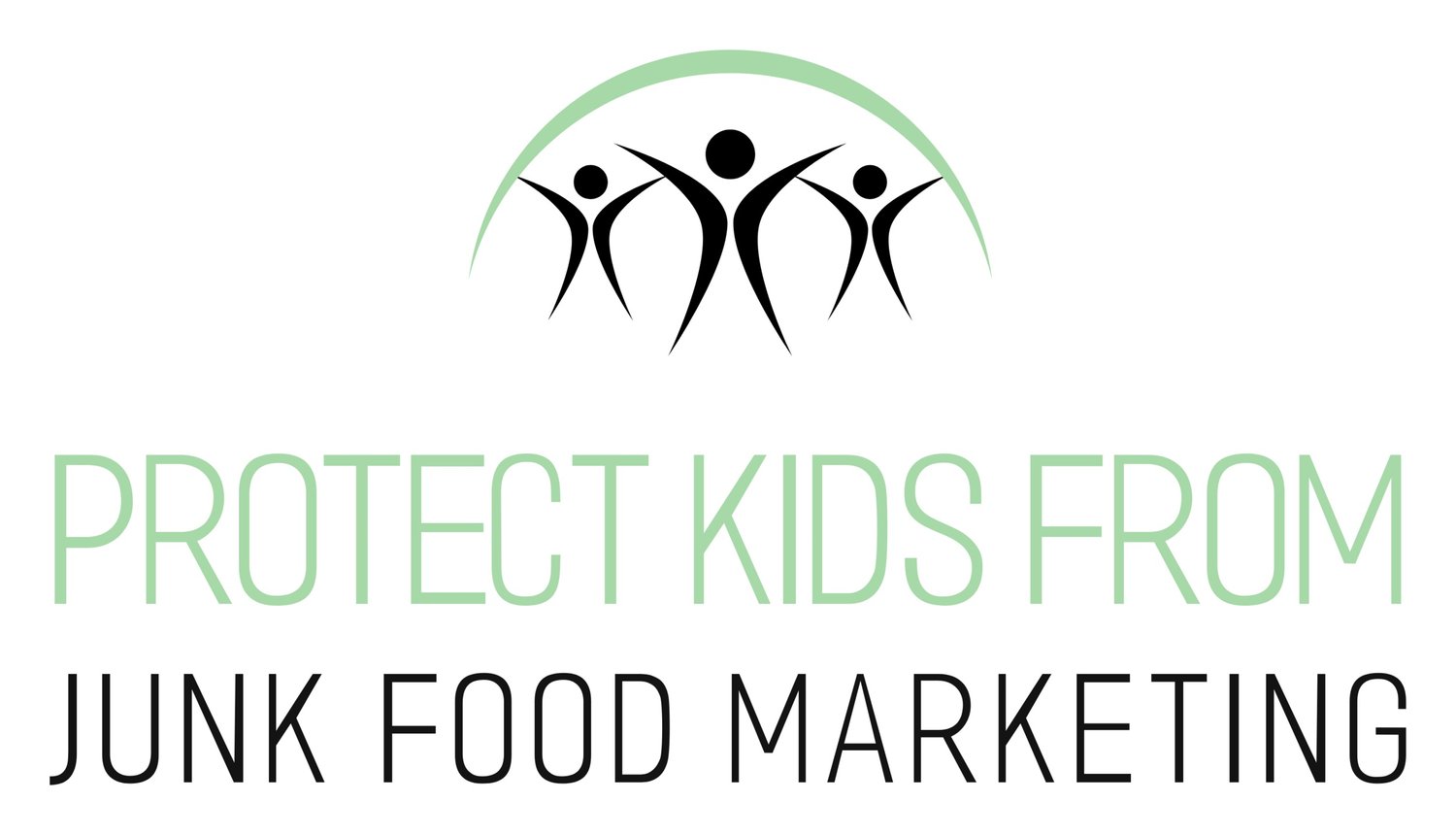Why are we concerned?
We want every child in New Zealand to grow up in an environment that allows them to be healthy.
Every child should be able to play, learn and live in a world that supports and promotes their wellbeing. Raising children in an environment that promotes healthy living is important. Childhood sets the foundation of future learning, behaviour and health. It shapes how children think about food and healthy living. It’s important that children get the right message, one that promotes their health and wellbeing, by promoting nutritious food, to set them up for a healthy future.
This is not the case now because of junk food marketing
The processed food industry spends millions every year targeting children with sophisticated marketing for unhealthy food. These advertisements are so prevalent they are almost the “wallpaper to children's” lives. Parents, not advertising agencies, should be responsible for which foods their children are exposed to. Food companies and fast-food chains craft campaigns to ensure unhealthy food brands are present in children’s lives from a young age. This builds powerful brand awareness and normalises unhealthy food. It also conditions children to be loyal customers for life. As unhealthy food industry profits more and more it is our children’s health that suffers.
Children cannot escape unhealthy food marketing – it surrounds them everywhere. Children should be able to go to school and the places they live and play without walking past a gauntlet of soft drink, fast-food and sugary food product advertisements. They should be able to watch their favourite sport, television show or online video without being exposed to unhealthy food brands.
The products marketed and sold by the unhealthy food and drink industry are making people sick. Their products are ultra-processed and packed with harmful ingredients like salt, sugar and unhealthy fats.
The processed food and advertising industries have freedom to design their own codes for how they market unhealthy food to children. As a result, the codes they have developed don’t often apply, and they do not stop the unhealthy food marketing that children see. For example – according to Neilson ratings there are zero times of day where a television audience would have enough of a children’s audience to prevent advertising.
Children in Aotearoa New Zealand, experience excessive levels of unhealthy food and drink marketing every day, more than twice the amount of advertising they see for healthy products.
Children are vulnerable to marketing and are less able to distinguish ads from entertainment than adults and are more susceptible to the marketing techniques used by the unhealthy food and drink industry.
Unhealthy food and drink marketing affects children’s eating behaviour. This is setting our kids up for a lifetime of adverse health-related consequences.
New Zealand has the second-highest child obesity and overweight rates across all OECD countries. Pacific children are 4.7 times more likely, and Māori children 1.6 times more likely, to live with obesity than other children, creating inequities, including exposure to unhealthy food and drink environments.
Healthy food and being a healthy weight are important to protect against serious conditions like cancer, heart disease, dental caries and type 2 diabetes. A healthy weight and diet can reduce cancer risk by 20-25% and at least 13 types of cancer.
Despite these known links, unhealthy food is easily available and excessively promoted in Aotearoa and even more so in low-income communities.
To read more about the link between diet, weight and cancer, read our blog post here.
Māori children are exposed to even more unhealthy food and drink marketing
Māori children do not start off life on an equal footing as non- Māori children. Their families are more likely to experience discrimination, unemployment, low incomes, housing difficulties, receive poorer level of healthcare and education, face financial difficulties and experience food insecurity - all a result of the Government failing to meet its obligations as a partner to Te Tiriti o Waitangi.
Another glaring inequity suffered by Māori children is that they are exposed to unhealthy food and drink marketing at twice the level of non- Māori children. Legislating the food environment to reduce harm from unhealthy marketing practices is therefore even more critical for Māori children and is needed to ensure they have the same opportunity to live long and healthy lives as all other New Zealand children.
New Zealanders want change
There is strong public support for change. Two out of three New Zealanders are supportive of tougher rules on unhealthy food and drink marketing. The majority (78%) agree that children are exposed to too many advertisements for unhealthy food and drinks, and this contributes to obesity.
Children agree too. According to them, they’re frequently exposed to food marketing and persuaded to make purchases they know to be harmful to their health. When asked, children suggested the need for less and more ‘truthful’ advertising and greater ‘rules’ to influence exposure to unhealthy food advertising.
